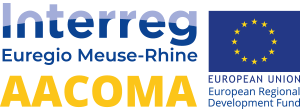
Centexbel is the Belgian Competence Center for Textiles and Plastics. Since more than 10 years, the centre is active in the development of composite materials in projects at EU and regional level. As a collective research center, Centexbel has as mission to promote the competitiveness of industrial companies by encouraging and supporting innovation with five complementary activities. These activities include applied research and development, knowledge dissemination, standardization, testing and certification. One of the five technology platforms existing at Centexbel is the textile and composite platform that is equipped with modern machines to realize prototypes and demonstrators of fibrous reinforcement structures for composite materials.
The technology is driven by highly skilled researchers and technicians. Fibrous reinforcing structures are a main part of composites. Beyond 2D structures we experienced with 3D structures to increase further performances of composites. Beside the Platform, Centexbel has also well-equipped laboratories (chemical, physical, rheological) for material and product evaluation. The existing knowledge in textiles and polymeric materials permits to have a holistic approach by developing new composite materials.

The technological domains covered by the Product Development Hub (PDH) of Sirris concern the innovation in Light, Micro and Smart Products with aim to support companies in the rapid development of physical proofs of concept. To reach this objective, the PDH proposes multiple up-to-date equipment’s and technologies driven by specialized engineers and technicians. Those are split in 6 Labs that are deeply interconnected to each other for a better service to the industry : • Concept Lab • Fabrication Lab • Micro Lab • Smart Lab • Hybrids Lab • Plastics Lab
The central thematic proposed in this Interreg project (ie composite manufacturing) is fully in accordance with of the core business of our Product Development HUB. Especially in our Hybrids Lab, the materials and processes are mixed to reach the optimum configuration in terms of performance (incl. weight saving) with respect to the economical target of the customer. Our activity is focused onto thermoplastic based materials (composite or polymer) that could be, if needed, associated with metallic components or other materials. Various technologies like over molding, vacuum bag and autoclave consolidation, pre and post assembly through thermal welding are already available and other new ones are under development. RTM Also the use of a Cobot to help the part manufacturing, 3D printing to produce specific components, thermal management or topology optimization are possible to create innovation or to updateconventional ways of working.
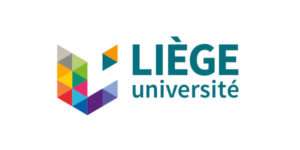
The Department of Aerospace and Mechanical Engineering of the University of Liège conducts teaching and research activities in the areas of computational and experimental mechanics with close ties with industry and international research centers. The department has a strong experience with several advanced simulation packages and numerical tools such as SAMCEF, OOFELIE, MATLAB, CATIA and NX, which are all available at the university. It has contributed to the development of software SAMCEF and OOFELIE through long-term partnerships with the software editors. The ULiège has access to powerful computing facilities. Within this department, the activities of the Multibody and Mechatronic Systems Laboratory lead by Prof. Olivier Brüls are centered on numerical methods for the dynamic analysis of mechatronic systems, with applications in the fields of robotics and biomechanics. Models are developed for the simulation, control and optimization of complex mechanical and mechatronic systems. The laboratory also offers a strong expertise in the field of industrial robotics and includes an experimental platform with five industrial robots that are made available for experimental tests and demonstrators. More specifically, the laboratory participated in the SQ_Equip and HFLE research projects which aimed at the development of robotics technologies for composite manufacturing.
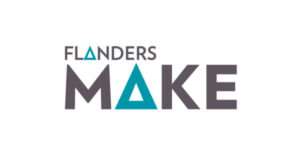
Flanders Make is the research centre for the manufacturing industry. We work together with companies and knowledge centres and perform pre-competitive, technological research into product and production innovations for the vehicle sector, the mechanical engineering industry and assembly environments, not only from our sites in Lommel, Leuven and, shortly, West-Flanders, but also together with colleagues working at the Flemish universities. Together with all our partners, we close the gap between academic research and industrial application. Our research projects deliberately target the technology pioneers within the Flemish landscape. We support these large and small companies step by step throughout their innovation projects and help them to translate the developed technologies and acquired knowledge into concrete products and services. This enables them to grow and offers them a competitive edge. In this way, we can keep companies and employment in Flanders. But it doesn’t stop there. We also stimulate, both within the scope of our service offer and through partnerships, the continued rollout of these product and production innovations as other companies often face similar technological challenges. In this way, we create added value for the whole manufacturing industry.
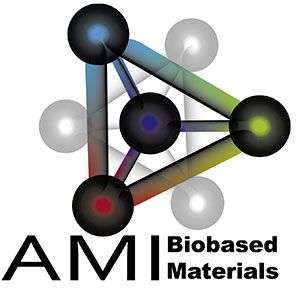
Maastricht University (UM) hosts nearly 17000 students in international BA, MA and graduate programs and 2000 academics. In the 2014 QS ranking of young research universities UM ranks 6th as best young university in Europe. Since 2012 UM has a research group specifically dedicated to “Biobased Materials. The group offers an international Master program on Biobased Materials since 2015. Maastricht University and RWTH Aachen University have established a European cross-border research institute focusing on the development of advanced biobased materials. The Aachen-Maastricht Institute for Biobased Materials (AMIBM) is located on the Brightlands Chemelot Campus in the Netherlands and strives for excellence in applied and translational research by creating synergies between academia and industry. This exciting collaboration will benefit both universities. The AMIBM mission is to replace traditional polymer building blocks with innovative and sustainable alternatives for the development of novel and environmentally-beneficial materials. The AMIBM vision is to provide the missing links between fundamental, applied and translational research in the field of biobased materials, by changing the relationship between the production of biobased materials and the value chain.
www.maastrichtuniversity.nl/research/aachen-maastricht-institute-biobased-materials

Fontys University of Applied Sciences provides education and research. Fontys is a broad-based university, the largest public knowledge institute in the south of the Netherlands and one of the largest institutes for higher professional education in the Netherlands. Fontys has a clear social assignment: offering inspiring, challenging and high quality higher vocational education and the execution of practical research that has significance for society. In our research we work on innovations in the professional field on themes that are relevant to the regions (Brabant, Limburg) and society at large. Fontys Hogeschool Toegepaste Natuurwetenschappen (FHTNW) is one of 28 Fontys schools (institutes). At FHTNW we have a lot of experience in processing and testing polymers in cooperation with the plastic industry. For processing we use methods such as extrusion, injection molding, 3D printing and lamination. Analysis can be performed, also on composite materials, such as ageing, mechanical testing, thermal analysis and rheology. All testing can be performed according to standards. The research on polymers is often combined with research in other areas where polymers are used to come to devices (for instance in printed electronics, biosensors using plastic microfluidic structures, or applications with modified surfaces which are hydrophilic or hydrophobic).
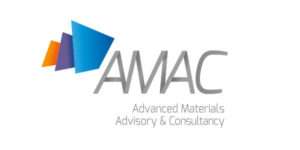
AMAC is an Industrial and Business Consulting Company in the field of lightweight construction materials based in Aachen, Germany. The business model of AMAC is based on three pillars: establishment and development of networking and clusters between universities and industrial companies, training in Sales and Marketing excellence as well as management of industrial projects in the field of innovations and commercialization. Dr. Michael Effing is Chairman of the board of the trade associations Composites Germany and AVK.

